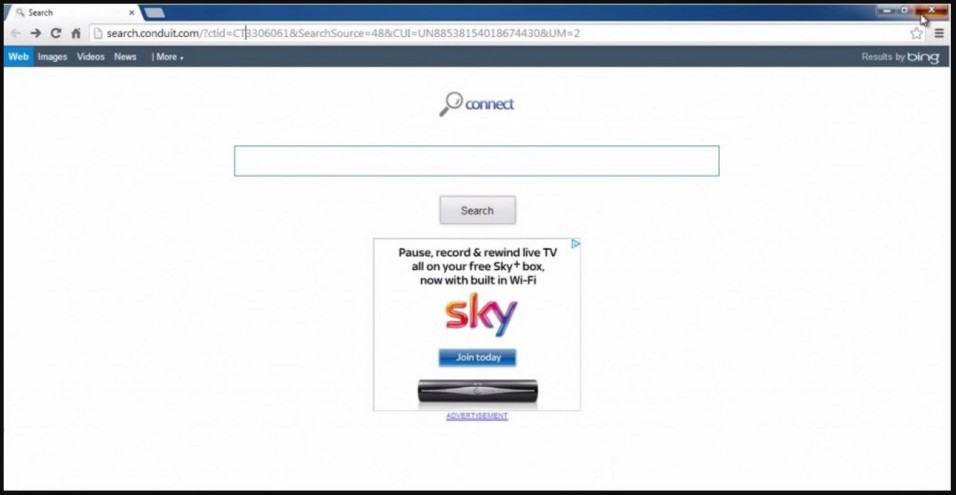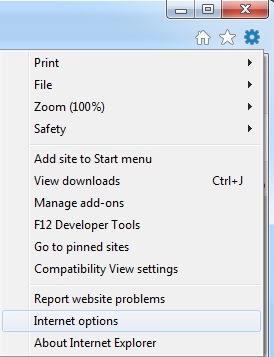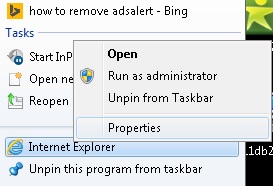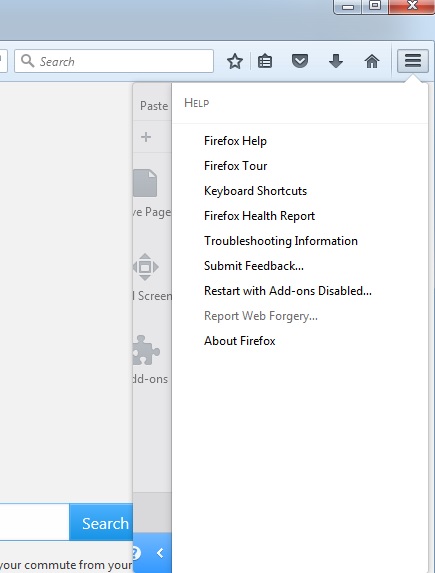How to Remove Adchoices ads from Chrome, Firefox or IE in several easy steps? Follow the Ads by Adchoices removal instructions and you will stop the virus.
If you want to remove Adchoices ads just take your time to do it. We assume you’re not reading removal guides just for the fun of it. That means you’ve already stumbled across the irritating and obnoxious Adchoices pop-up ads. First things first – these ads are caused by a parasite. Your once virus-free machine has been infected with some adware-type PUP. As a result, the Adchoices ads have emerged. Before you panic, you should know that adware is the least virulent infection out there. It can’t harm you directly which is why it generates dubious commercials. Now, there are numerous problems with these ads. As we mentioned already, they are incredibly annoying. The Adchoices pop-up ads cover all websites you visit all the time. They are difficult to avoid, intrusive and utterly disagreeable. And that’s just the beginning. As soon as the adware gets installed, it modifies your browsers. You’ll notice a brand new malicious browser extension that was added behind your back. You see, that’s what adware does. It messes with your default browsers settings to serve hackers’ purposes. Obviously, it doesn’t bother to search for your permission or consent beforehand. No, hackers aren’t interested in your browsing experience. Since the moment your device gets compromised, your opinions and preferences no longer matter. By installing its nasty plugin, the parasite injects your browsers with ads. Adchoices is nothing but a website. This is a highly questionable advertising platform that brings the ads to you. However, what you should be worried about is the virus that’s on your PC system. It’s lurking somewhere on your computer and is causing damage in silence. Needles to say how dangerous that is. PC infections get out of control very quickly so you have to take action ASAP. If you hesitate for too long, you’ll have no one to blame for the trouble this program can make. The Adchoices pop-up ads are quite a pest. We’re talking pop-ups, pop-unders, banners, interstitials, video ads, etc. This never-ending pile of web links will test the limits of your patience. As you could imagine, surfing the Internet becomes almost impossible. Furthermore, these commercials are unsafe. The virus itself is ad-supported which means crooks gain profit out of its advertisements. Remember, there are some corrupted ads among the real ones on your PC screen. Clicking is the only way to find out which is which but is it really worth it? Don’t take any chances with the virus. This program exposes you to malware, infects your browsers and bombards you with ads. It redirects you to various questionable websites. As if that wasn’t enough, the virus also collects browsing-related data. Why would you keep this nuisance on board?
web browser because the infection is compatible with all the most popular ones. You will have to delete it if you want to regain control over your browser and to stop seeing potentially dangerous ads.
| Name |
Adchoices Pop-Up Ads |
| Type | Browser Hijacker, Adware |
| Danger Level | High (annoying and virulent) |
| Symptoms | PC slowness, sudden blue screens, unwanted pop-up advertisements. |
| Distribution Method | freeware installations,via email attachments, malicious websites, zero day exploits. |
| Detection Tool | Browser hijackers are quite difficult to track down, since they are constantly developed. Use this professional Adchoices Removal Tool to make sure you find all traces of the infection. |
*You can use the SpyHunter FREE SCANNER to detect the parasite, however if you want to delete it automatically you need to register the antimalware program.
Where does this comes from?
Adchoices is masterful when it comes to sneaking into your system undetected. Oh, yes. Not only does it manage to fool you into approving its installation, but it also keeps you clueless to it That’s right. It enters the under the veil of deceit, and you have no idea there’s a hazardous infection lurking in your system until it decides otherwise. The application is a master of disguise, and it usually slithers its way in with the help of the old but gold methods of infiltration. Its book of tricks includes hitching a ride with freeware or hiding behind spam email attachments, corrupted links, or sites. It can also pose as a fake system or program update. For example, you may be entirely convinced that you’re updating your Adobe Flash Player or Java, while, in actuality, you’re installing Adchoices. Do you see the pattern? All of the means of infection the tool turns to rely on your distraction, naivety, and haste. So, to keep adware such as Adchoices away from your system, just be more cautious and don’t rush.
Is this dangerous?
Adchoices’s selling point is that it’s a useful application that helps you increase your savings. Supposedly, with the assistance of its pop-ups, the tool shows you all the best deals and bargains you can take advantage of. Also, it provides you with various coupons for online sales that also help you save money. At least that’s what the program claims to do. Unfortunately, these are all empty promises. In reality, the negatives far outnumber the positives. The program harms you much more than help you as it’s not designed to assist you in saving money but use you to make money. Oh, yes. The application’s primary objective is to generate pay-per-click revenue for the unknown third parties that published it. If it fails, it ceases to exist. That’s why Adchoices leaves nothing to chance! It monitors your online activities, collecting information on your likes and dislikes. Once it understands what appeals to you, it selects ads that correspond to your preferences and floods you with them. It hopes to spark your interest and fool you into clicking on its unreliable ads. If you’re foolish enough to do that, all you’ll have to show for it is more malware getting installed on your PC. What’s worse, Adchoices keeps a thorough record of your every move. And once it’s done observing your browsing, it sends this record to the people behind it. Are you willing to hand your personal and financial details to strangers with agendas? Think long and hard before you decide.
How Do the Adchoices Pop-Up Ads look like?
Here’s a screenshot:
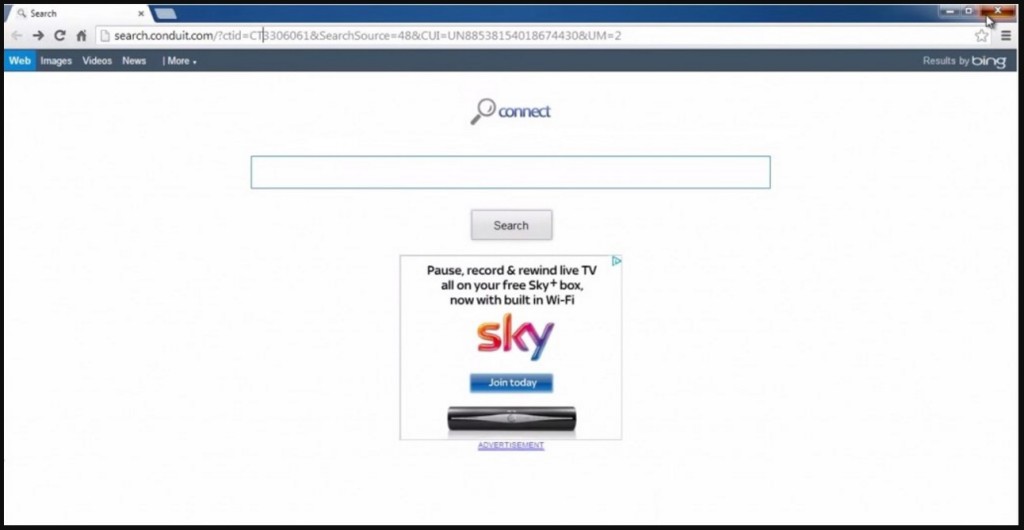
Attention! You should be aware that all of your accounts and passwords were likely compromised. Viruses are designed to collect every piece of private information. We advise you to change all your passwords, once you clean your computer, especially if you make online banking or shopping.
How Can I Remove Adchoices Ads?
Compatible with Microsoft
SpyHunter is the recommended Adchoices Removal Tool. You can use the free scanner to detect the parasite, however if you want to delete it automatically you need to register the antimalware program.
What if SpyHunter failed to Detect or Remove the infection? – Find out here how to use the FREE Support.
Remove Adchoices infection Manually
If you perform exactly the steps below you should be able to remove the Adchoices infection. Please, follow the procedures in the exact order. you may want to print this guide or look at it in another computer.
STEP 1: Remove Adchoices from IE, Chrome or Firefox
STEP 2: Uninstall Adchoices from your Add/Remove programs list
STEP 3: Delete Adchoices Windows Registry Traces
STEP 1: Remove Adchoices from IE, Chrome or Firefox
Adchoices Ads will infect every browser you have. You need to do the steps one by one.
Remove From Internet Explorer
- Open Internet Explorer
- Up to the Right Click on the Gear Icon
- Go to Toolbars and Extensions
- Disable the ads by Adchoices extension.
- If the button is not active, you need to go to your Windows Registry and delete the corresponding CLSID
- Then go back to the Gear Icon.
- Click on Internet options
- Select the Advanced tab and click on Reset.
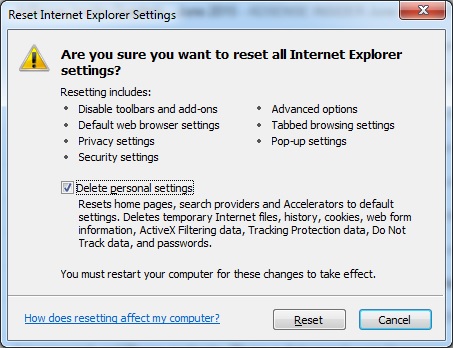
- Check the “Delete Personal Settings Tab” and then Reset
- Restart IE
to make sure nothing is interfering with your browser, right click on the shortcut target and click properties
- In the target field you need to have the following command parameter: “C:\Program Files\Internet Explorer\iexplore.exe”
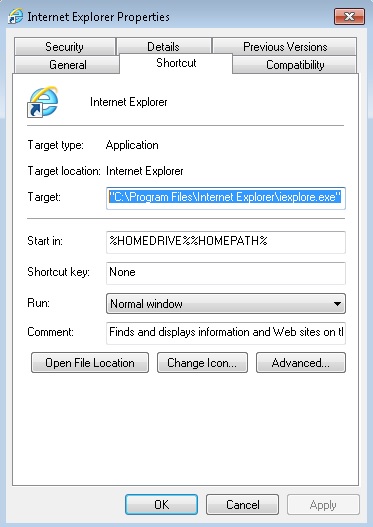
- if you have something else, just delete it and replace it.
- simultaneously press the windows start button and “R”
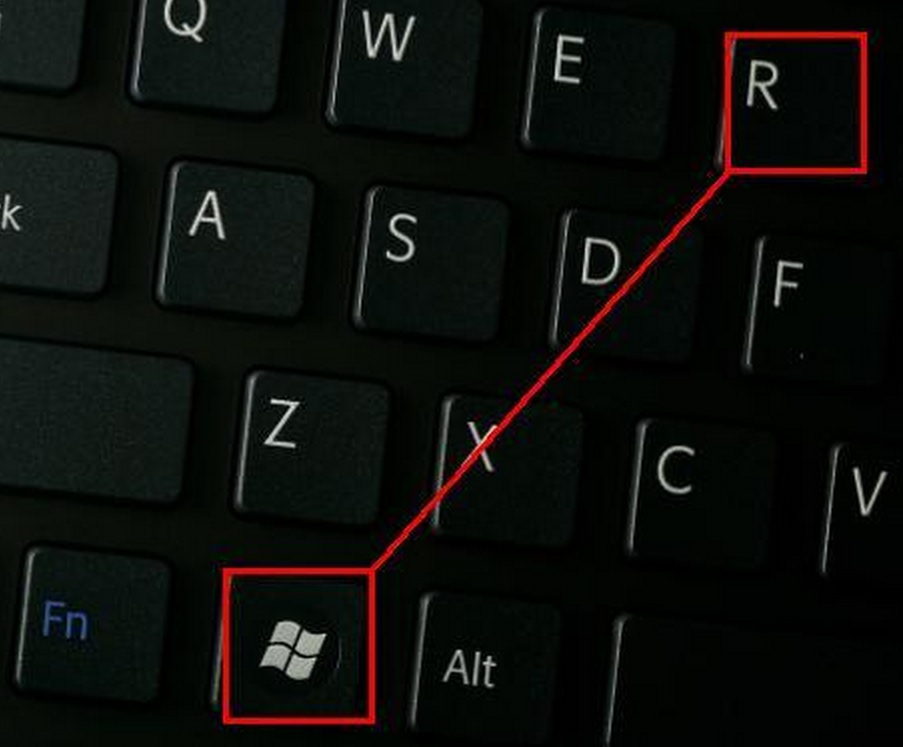
- in the opened dialog box type “regedit“
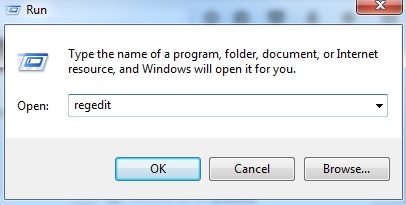
- Once the windows registry editor opens navigate to: HKEY_CURRENT_USER/Software/Microsoft/Internet Explorer/Main:Start Page
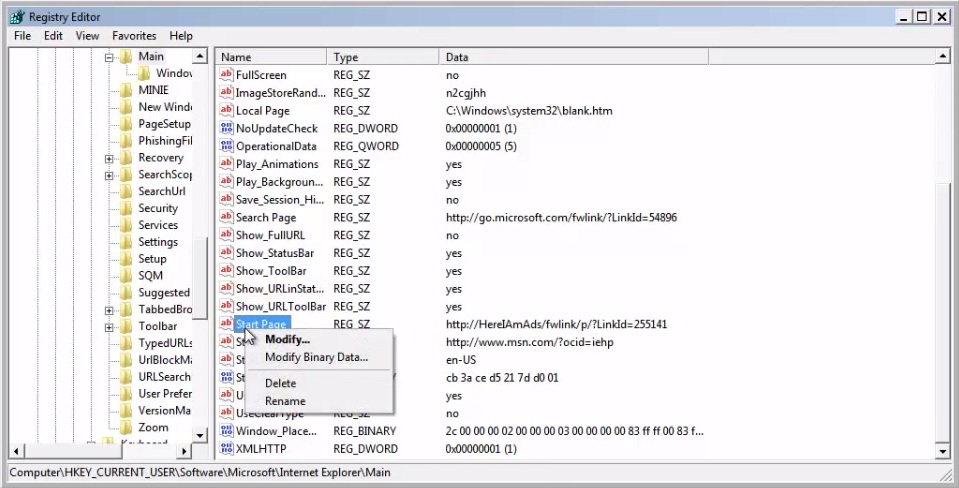 Modify the starting page with a value so that it corresponds to the webpage you want.
Modify the starting page with a value so that it corresponds to the webpage you want.- click OK and IE should be cleaned.
Remove from Mozilla Firefox
- Open Mozilla Firefox
- Press simultaneously Ctrl+Shift+A
- Carefully review all add-ons and disable the unknowns
- Open the Firefox’s Help Menu
- Then Troubleshoot information
- Click on Refresh Firefox
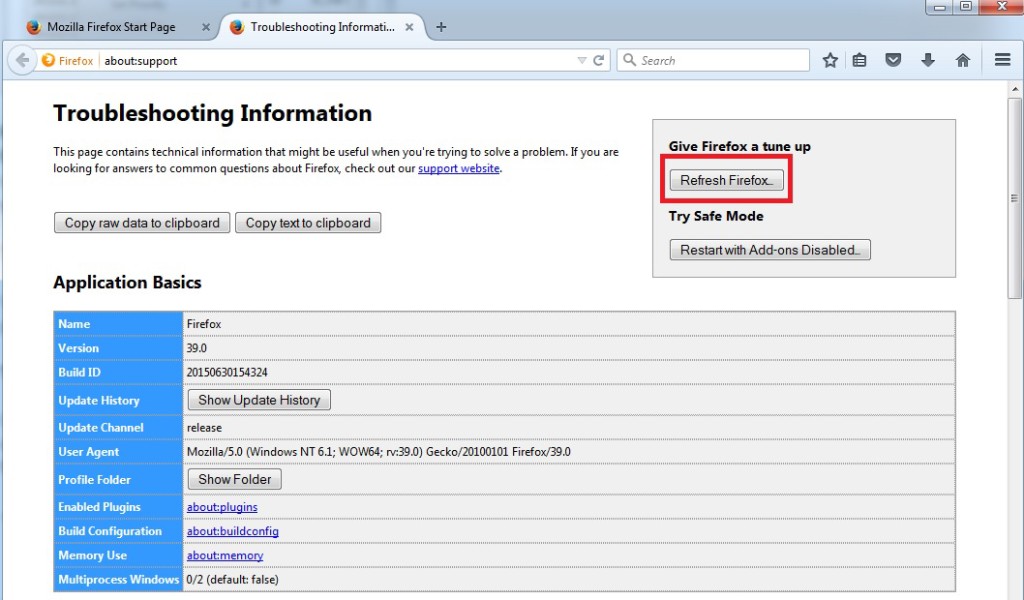
Remove from Google Chrome
- Open Google Chrome
- On the upper right corner click the Chrome menu Icon (looks like three dashes)
- Hover Over More tools, then Extensions
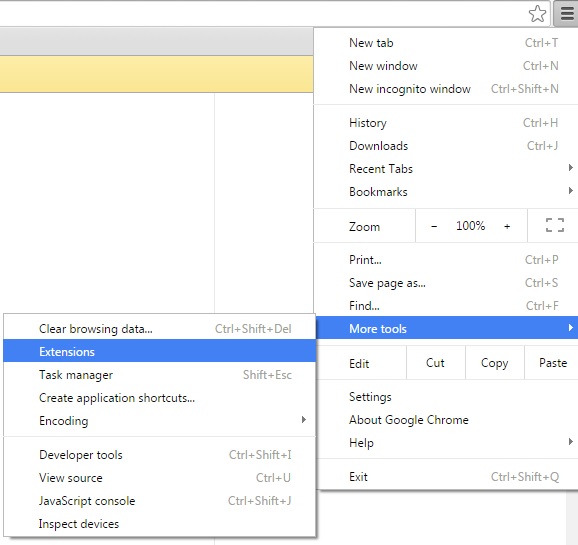
- in the extensions windows disable all unknown extensions
- On the upper right corner click the again the Chrome menu Icon (looks like three dashes)
- Click on Settings, Show Advanced Settings then Reset
STEP 2 : Uninstall Adchoices from Your Computer
- Simultaneously press the Windows Logo Button and “R” to open the Run Command
- In the open dialog box type “Appwiz.cpl“
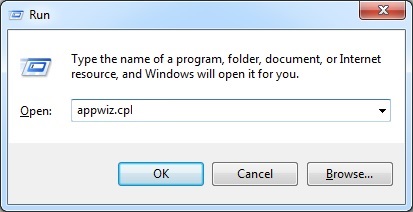
- Locate the Adchoices program and click on uninstall/change.
- Also, be warned that viruses always want to trick you into installing more crap. If you see a screen like this when you click Uninstall, Click NO!
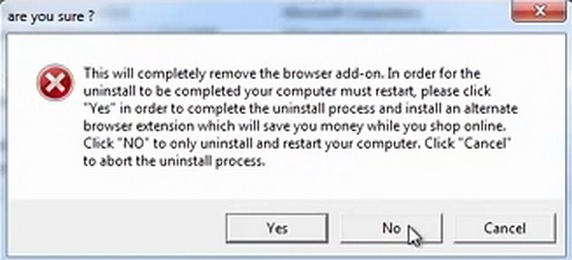
STEP 3 : Delete Adchoices Windows Registry Traces
These are the places in the windows registry where viruses inject their malicious payload. If you want to be 100% sure that nothing is hooking your system, check these locations. However, be very careful when editing the windows registry, because you can render your system unbootable.
- HKCU–Software–Microsoft–Windows–CurrentVersion–Run
- HKCU–Software–Microsoft–Windows–CurrentVersion–Run
- HKLM–System–CurrentControlSet–Services
- HKLM–SOFTWARE–Microsoft–Windows NT–CurrentVersion–Winlogon–Notify
- HKLM–Software–Microsoft–Windows NT–CurrentVersion–Winlogon–Userinit
- HKCU–Software–Microsoft–Windows NT–CurrentVersion–Winlogon–Shell
- HKLM–Software–Microsoft–Windows NT–CurrentVersion–Winlogon–Shell
- HKLM–Software–Microsoft–Windows–CurrentVersion–RunOnce
- HKLM–Software–Microsoft–Windows–CurrentVersion–RunOnceEx
- HKCU–Software–Microsoft–Windows NT–CurrentVersion–Windows–load
- HKLM–Software–Microsoft–Windows NT-CurrentVersion–Windows
- HKLM–SOFTWARE–Microsoft–Windows–CurrentVersion–Explorer–SharedTaskScheduler
Where HKCU stands for HKEY_CURRENT_USER
Where HKLM stands for HKEY_LOCAL_MACHINE
- Check these folders for corruption as well.
C:–Documents and Settings–All Users–Start Menu–Programs–Startup
C:–user–Profiles–All Users–Start Menu–Programs–Startup
C:–Documents and Settings–All Users–Start Menu–Programs–Startup
Make sure that your Windows HOSTS file is also clean.
